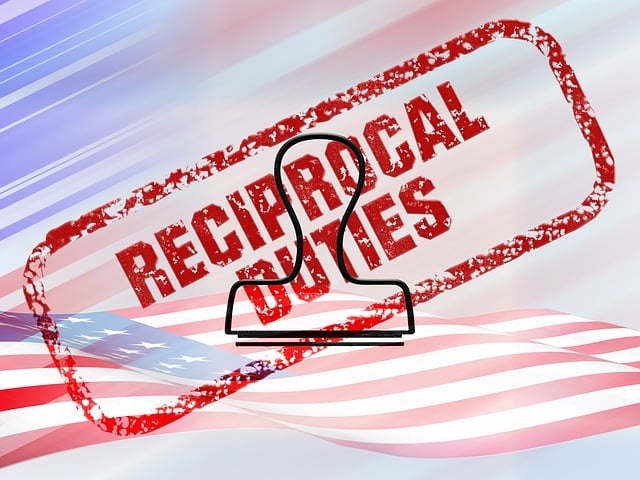Oregon's probate laws provide a structured framework for resolving estate conflicts, ensuring fairness in asset distribution. The process begins with an executor appointed to manage affairs according to the deceased's will or trust. Key provisions address will contests, asset disputes, and beneficiary rights. Understanding these laws helps individuals navigate estate administration smoothly. Alternative dispute resolution (ADR) methods like mediation and arbitration offer efficient solutions, reducing time and costs compared to litigation. In complex cases, traditional litigation through county courts serves as a last resort. Strategic communication, understanding state-specific laws, and proper estate planning tools are crucial for resolving Oregon probate disputes efficiently and fairly, avoiding lengthy legal battles.
Oregon’s complex estate laws lay a crucial foundation for dispute resolution, ensuring fair outcomes for all parties involved. This comprehensive guide delves into the intricacies of Oregon probate disputes, offering valuable insights on understanding state-specific regulations and navigating potential conflicts. From identifying common causes of estate disputes to exploring alternative dispute resolution (ADR) methods and court system procedures, this article equips readers with strategies for achieving successful resolutions in Oregon probate cases.
- Understanding Oregon's Probate Laws: A Foundation for Dispute Resolution
- Common Causes of Estate Disputes in Oregon
- Alternative Dispute Resolution (ADR) Methods for Oregon Probate Cases
- Navigating the Court System: When Litigation is Inevitable in Oregon Estate Disputes
- Strategies for Achieving Successful Outcomes in Oregon Probate Disputes
Understanding Oregon's Probate Laws: A Foundation for Dispute Resolution

Oregon’s probate laws provide a robust framework for resolving estate disputes, ensuring fairness and order in the distribution of assets. Understanding these laws is essential for all parties involved in an Oregon probate dispute. The process begins with the appointment of an executor or personal representative who manages the deceased’s affairs according to their will or trust. This includes identifying and valuing assets, paying debts, and distributing remaining property as directed by the testamentary documents.
Key provisions within Oregon’s probate code address various issues, such as contestation of wills, disputes over asset distribution, and the role of beneficiaries. By familiarizing themselves with these laws, individuals can navigate the complex landscape of estate administration more effectively. This knowledge empowers them to make informed decisions, avoid costly legal battles, and work towards successful outcomes in Oregon probate disputes.
Common Causes of Estate Disputes in Oregon

In Oregon, like many states, estate disputes can arise from a variety of sources, often complex and emotionally charged situations. Common causes include disagreements among heirs over the distribution of assets outlined in a will or trust, disputes regarding the validity of a will, and conflicts over appointments of personal representatives or executors. Probate disputes can also occur when there are allegations of undue influence, fraud, or misappropriation of funds during the administration of an estate.
Additionally, Oregon probate laws can be intricate, leading to misunderstandings that breed dispute. Issues such as missing or unclear documentation, complex property holdings, and disagreements over the interpretation of legal terms can all contribute to a contentious environment. Moreover, when family members have differing views on what the decedent’s wishes were, it can lead to acrimonious debates that prolong the resolution process and incur significant legal costs.
Alternative Dispute Resolution (ADR) Methods for Oregon Probate Cases

In Oregon, resolving estate disputes often involves Alternative Dispute Resolution (ADR) methods, which can offer more efficient and cost-effective solutions compared to traditional litigation. ADR techniques such as mediation and arbitration are increasingly preferred in Oregon probate cases due to their ability to facilitate negotiations between disputing parties. Mediation, for instance, brings together the involved parties and a neutral mediator who helps them communicate, understand each other’s perspectives, and ultimately reach an agreement without going to court.
Oregon probate disputes can involve complex matters like contested wills, trust administration issues, or disagreements among heirs. ADR provides a flexible framework where these issues can be resolved through collaborative problem-solving. Arbitration, another popular ADR method, allows parties to present their arguments before a neutral arbitrator who then makes a binding decision. This streamlined process can significantly reduce the time and expense associated with probate litigation while ensuring that all parties’ interests are fairly considered.
Navigating the Court System: When Litigation is Inevitable in Oregon Estate Disputes

When all other attempts at resolving an Oregon estate dispute fail, litigation may become inevitable. Understanding the court system is crucial for achieving a successful outcome in probate disputes. In Oregon, these cases are typically handled by county courts, with the specific procedures and requirements varying depending on the jurisdiction.
The first step is to file a lawsuit, usually involving petitioning for probate or contesting a will. Once filed, both parties have an opportunity to present their arguments and evidence before a judge. The court will then make decisions regarding estate distribution, validity of wills, and other matters. Efficient navigation of this process requires legal expertise, as well as a clear understanding of the applicable laws and regulations governing Oregon probate disputes.
Strategies for Achieving Successful Outcomes in Oregon Probate Disputes

In Oregon, achieving successful outcomes in probate disputes requires a strategic approach. One key strategy is early intervention and communication. By addressing conflicts at an early stage, parties can avoid lengthy and costly litigation. Regular meetings and open dialogue can help identify issues before they escalate, fostering a cooperative environment that benefits all involved.
Additionally, understanding the specific laws and procedures governing Oregon probate disputes is essential. Familiarity with these nuances enables legal professionals to navigate complex scenarios effectively. This includes knowledge of estate planning tools, such as trusts and wills, as well as an understanding of how to interpret them when disagreements arise. Such expertise can significantly influence the outcome of a dispute, ensuring fairness and efficiency in resolving Oregon probate matters.






